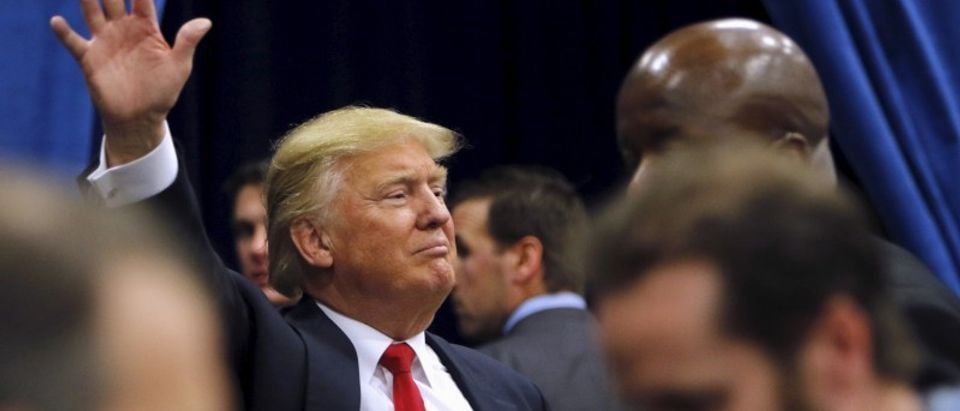Few things are more obvious in American politics today than the anger being expressed by many American citizens. An NBC poll recently revealed that half of Americans are more angry today than they were a year ago, and more than half get mad at least once a day because of something they hear on the news.
This anger has translated into the rise of certain presidential candidacies and has reshaped the primary race. Voters have channeled their wrath into supporting populist presidential candidates who express public dissatisfaction with the status quo.
One candidate who benefits from such anger is Donald Trump. He appeals to many citizens who are upset because they perceive they are being marginalized culturally and economically, and to citizens who are fed up with the type of “political correctness” that shuts down transparent conversation in the public square.
But Trump is not the only example. Bernie Sanders is attractive to many citizens who work hard but think their work hasn’t paid off or, at least, hasn’t paid off in any way that could be called “the American dream.” Other candidates also benefit from the simmering resentment.
We sympathize with the frustrations and concerns of citizens who find themselves culturally marginalized, economically challenged, and frustrated by the PC rulebook that has been forced on us by leftist elites.
And yet, disgruntled Americans should be aware of the “beer goggle effect” that threatens to seduce them in the voting booth. “Beer goggles,” of course, is a slang term for the phenomenon in which alcohol lowers a person’s inhibitions and affects his or her discretion. It is often humorously applied to situations in which a drunk person makes advances towards a partner he would otherwise consider inappropriate or unattractive.
Consider how that analogy applies to evangelical voters in the presidential primaries. The polls reveal that a large number of self-identified “evangelical” voters are angry, and are supporting a particular candidate because they are angry.
In their anger, they forget to ask significant questions, such as:
- Is the candidate solid on certain policy issues (e.g. abortion) that are central to evangelical convictions? On other policy issues (e.g. economy) important to the voter?
- Does the candidate exhibit the type of character and moral fortitude that assure the voter that candidate will not break the trust of those who bring him or her into office?
- Does the candidate exhibit the wisdom and steady hand a leader needs to make decisions on significant issues, such as whether or not to take the country into war?
- Does the candidate surround himself or herself with wise counselors, or merely with “yes men”?
- Is the candidate ego-centric, or does he exhibit the humility necessary to put the country first and himself or herself second?
According to the polls, those of us who identify as evangelicals are angry. We run the risk of becoming inebriated with our anger in such a way that any presidential candidate who presents himself as angry suddenly appears attractive to us. Even if that presidential candidate repeatedly says and does things that go against the grain of evangelical conviction or are inappropriate to the office of President, we are tempted to ignore those things and embrace the candidate.
So we have to ask the question: as evangelicals, do we really want to let anger be the primary driver of our voting? The answer is no. If we do, we will wake up in the morning with a hangover, wondering what we found so attractive in him or her, and experiencing who knows what sort of consequences.
Bruce Ashford is the Provost and Dean of Faculty at Southeastern Baptist Theological Seminary, where he also serves as Professor of Theology and Culture. He co-authored the recently-released “One Nation Under God: A Christian Hope for American Politics” (B&H Academic, Dec. 2015) with Chris Pappalardo. Follow him on Twitter @BruceAshford.


